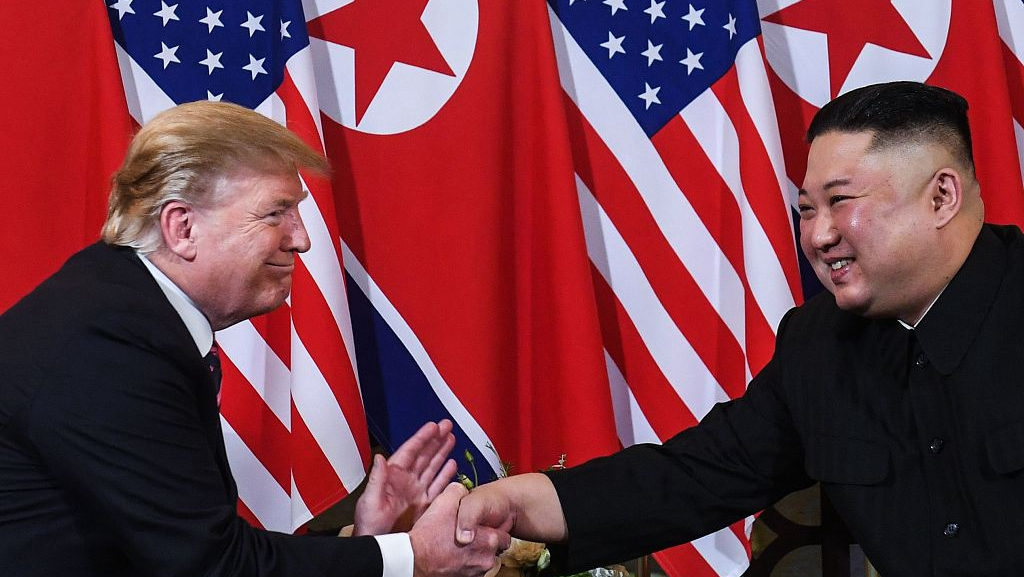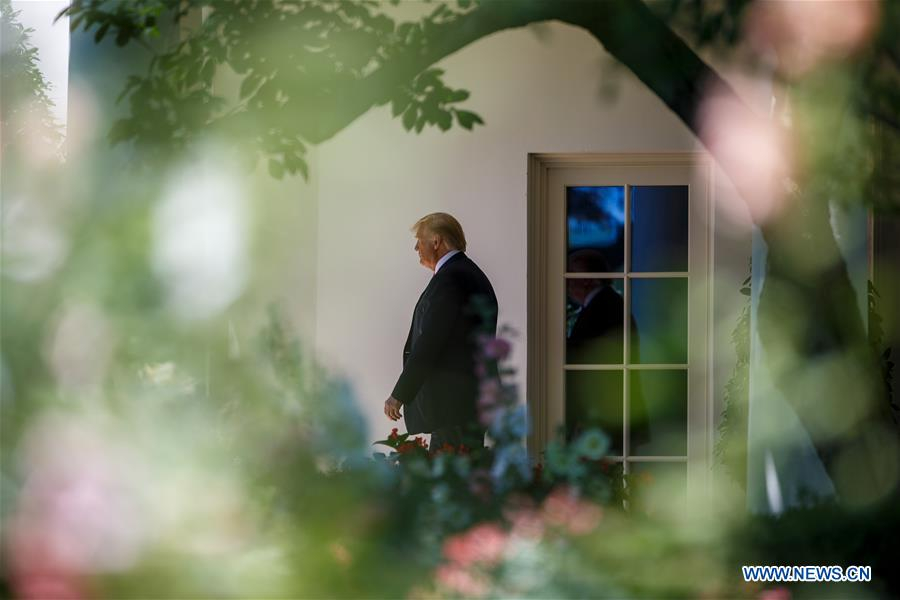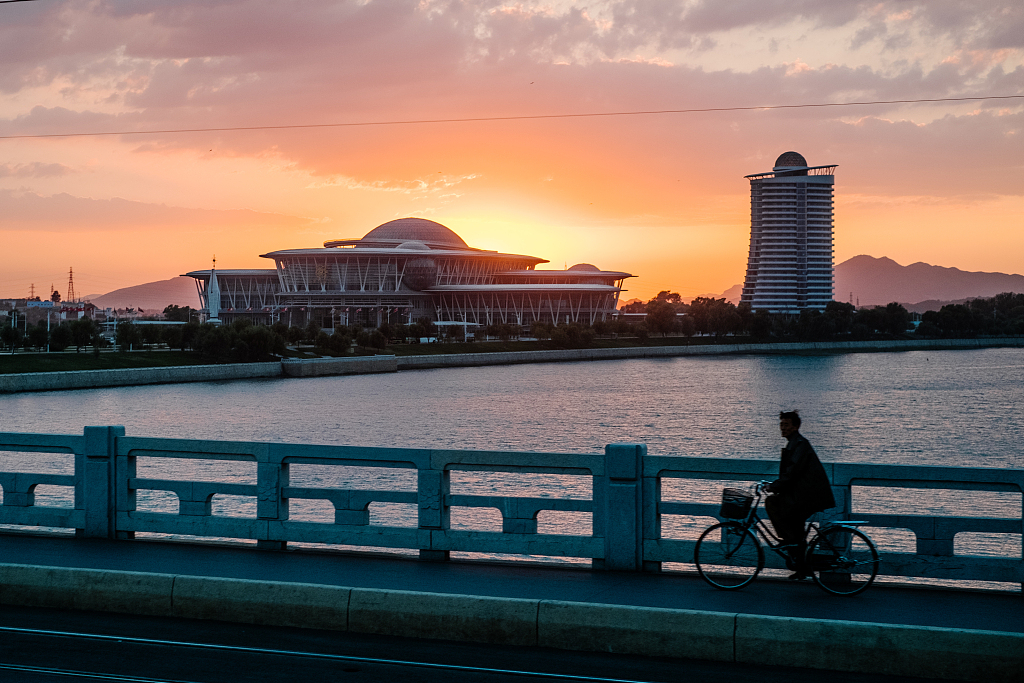

Editor's note: Xu Fangqing is a senior editor at China News Week and an observer of Northeastern Asia and China's neighboring countries. The article reflects the author's views, and not necessarily those of CGTN.
An "excellent letter" from U.S. President Donald Trump came to the table of Kim Jong Un, top leader of the Democratic People's Republic of Korea (DPRK), after he successfully hosted his counterpart, Chinese President Xi Jinping.
As a response to the "beautiful" letter sent by Kim Jong Un early in June, President Trump wrote back to his "friend" recently. Kim said he would "seriously contemplate the interesting content" and he appreciates President Trump's political judging faculty and extraordinary courage, according to a report of DRPK's state media on Sunday.
It’s a good "correspondence between the two leaders" considering the gridlock on the peace process of the Korean Peninsula after the break-down of the formal talks in Hanoi Summit this February.

U.S. President Donald Trump speaks to reporters before leaving the White House in Washington, DC, U.S. June 11, 2019. /Xinhua Photo
According to the Korean Central News Agency last Sunday, some content was underlined yet no more details are elaborated until now. But the "letter engagement" inspires more anticipation for the third Kim-Trump summit by the end of year as DPRK's leader ever expressed he could patiently wait for the U.S. side until the end of 2019.
Kim Jong Un made the statement at a conference when he delivered his policy speech in April. He reiterated that he was also open to another summit as long as the United States could step forward with the DPRK side by side
However, Kim also said in his speech, "It will clearly be difficult for a good opportunity like last time to come up." Obviously, the DPRK will not accept the style the U.S. had exerted towards it during the Hanoi Summit.
Moreover, Pyongyang no longer underscored the sanction-lift target for the negotiations in its official statements but ramped up the self-independence especially on its domestic economic development. This attitude also indicates its dissatisfaction over the process and mechanism of the DPRK-U.S. denuclearization talks.
Although as the first U.S. president to talk with the DPRK without any preconditions, Trump only brought in two summits until now. At the dawn of an agreement, the two sides once again fell into a historic dilemma: Washington or Pyongyang, who shall make concession first for the denuclearization of the Korean Peninsula that has been hindering the peace process for decades?

Pyongyang, DPRK, October 18, 2018. /VCG Photo
Therefore, we could say it would be hard to make breakthrough even we could witness the third summit between the two leaders in the second half of the year, as all expect without any substantial innovation on this paradox.
Russian President Vladimir Putin proposed to re-launch the Six-party talks during his talk with Kim Jong Un when the later visited Russia in April. It's still a history-proven and practical mechanism to deal with the nuclear issues in the region. The failure of Hanoi Summit to some extent indicates that a regional trust and safety multilateral system is inevitable.
The six-party talks could be a four- or five-party dialogue and may adapt to different situations. More flexibility and openness within the multilateral framework could safeguard the real progress on the peace of the Korean Peninsula. Besides, the bilateral summits between the DPRK and the U.S., the U.S. and the ROK, and two Koreas are also integrated into this framework as well.
As a long-term positive player, China will consistently contribute to the realization of those "interesting content" just as President Xi expressed during his recent state visit to Pyongyang. China has promised to promote the denuclearization of the Korean Peninsula and will play a bigger role for the mediation among all sides in the region.
It’s positive to see a step forward on the Korean peace progress as long as all parties anticipate in and keep working on it. Collective wisdom is needed to materialize the beautiful words in the letter and we see no other option on the table given the string of bilateral summits over the past year.
(If you want to contribute and have specific expertise, please contact us at opinions@cgtn.com.)

Copyright © 2018 CGTN. Beijing ICP prepared NO.16065310-3
Copyright © 2018 CGTN. Beijing ICP prepared NO.16065310-3